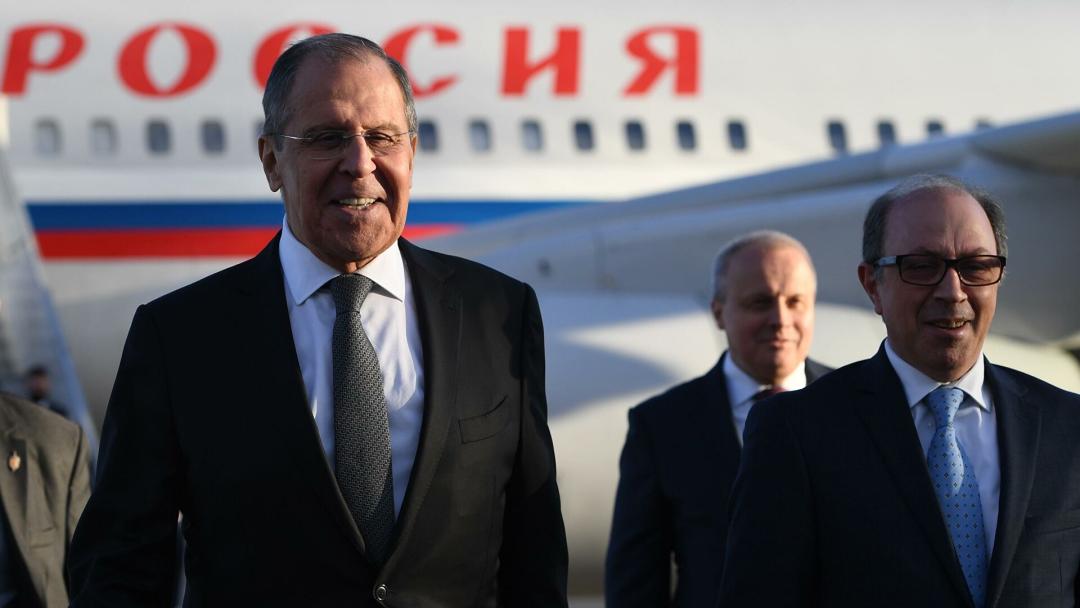
Lavrov and Ayvazyan meeting: Nagorno-Karabakh and vaccine production on the agenda

On 6 May, Armenia’s Foreign Minister Ara Ayvazyan and his Russian counterpart Sergey Lavrov held a tete-a-tete meeting in Yerevan.
According to the press service of Armenia’s Ministry of Foreign Affairs, the parties discussed a wide range of issues of bilateral and regional cooperation, as well as interaction in the international arena. The main focus of the discussions was the implementation of the agreements on Nagorno-Karabakh stemming from the statements of the leaders of Russia (Vladimir Putin), Azerbaijan (Ilham Aliyev) and Armenia (Nikol Pashinyan) dated from 9 November 2020 and 11 January 2021.
Lavrov stated that Russia was “not slowing down” the efforts to return the Armenian detainees in Azerbaijan to their country of origin. He also noted that the success of the work of vice-premiers of Armenia (Mher Grigoryan), Russia (Alexey Overchuk) and Azerbaijan (Shahin Mustafayev) on unblocking economic communications will be of resolute significance for the creation of conditions necessary for normalisation of general situation in the region.
“The peace process, which began on 9 November with the aim of ending the [recent] war and passing to peacekeeping operation[s] and unblocking all economic and transport communications, has been going on for almost half a year; that is why talking about “passing to a peace process” is a distortion of reality,” Lavrov stated. “When people are freed from the blockade and embargo, then they will move on to reap the benefits of this region with strategic, geopolitical, and geo-economic importance,” he added.
“There is no need to politicise the process now; it is quite complicated. Those who try to leave these issues for later and deal with political issues first, in my opinion, turn the whole process from head to toe,” the Russian Foreign Minister underscored. “Any issue that may contradict the agreements reached by the leaders of Russia, Armenia and Azerbaijan, of course, cannot be accepted as an alternative to what was agreed upon,” he added.
Another important topic, which was highlighted by Lavrov, were the provisions of Sputnik V Covid-19 vaccine to Armenia and the possibility of organising the production of the vaccine in Armenia. “Since the first outbreak of Covid-19 we have been closely cooperating with Russia providing assistance to Armenia to prevent the spread of the coronavirus pandemic. The request of our Armenian friends on providing one million doses is being worked out,” he said.
Lavrov also addressed the issue of military cooperation and trade relations between the two countries. “We are time-tested allies, strategic partners. During the talks, we stated that a political dialogue at the highest level is actively developing between us, our leaders only this year had two full-scale face-to-face meetings, eight telephone conversations, and the heads of government met twice, interaction has been established through ministries and departments as well,” he said. In terms of trade, Lavrov highlighted that due to the Covid-19 pandemic, the Russian-Armenian trade slashed in the year 2020 by 9.6% to $2.3 billion. “When we get out of the pandemic, we expect the bilateral trade to start increasing at a rapid pace,” Lavrov stressed.
As for Ayvazyan, the Armenian Foreign Minister outlined the importance of an active political dialogue and broad foreign policy coordination between the two countries. "We are interested in promoting bilateral relations through the consistent activity of such mechanisms as the intergovernmental commission on economic cooperation, the inter-parliamentary commission, the commission on military-technical cooperation," he stated. The Armenian FM also stressed the importance of creating conditions for the resumption of the peace process under the auspices of the OSCE Minsk Group. He stated that it was important to create elementary conditions for the return of displaced persons to their homes and to render humanitarian aid to the population, and to restore the economy in Nagorno-Karabakh.
The two Foreign Ministers also signed an intergovernmental memorandum on biological security which is aimed at contributing to the development of future cooperation in this sector.
See Also


Mirzoyan Meets US Deputy Assistant Secretary Joshua Huck

Azerbaijani President Holds Talks with UAE and German Business Delegations on Economic Cooperation

Grigoryan Confirms Armenia’s Readiness to Dissolve OSCE Minsk Group Upon Peace Treaty Signing

Azerbaijani Official Warns of Ecological Risks to Caspian Sea, Similar to Lake Urmia and Aral Sea

